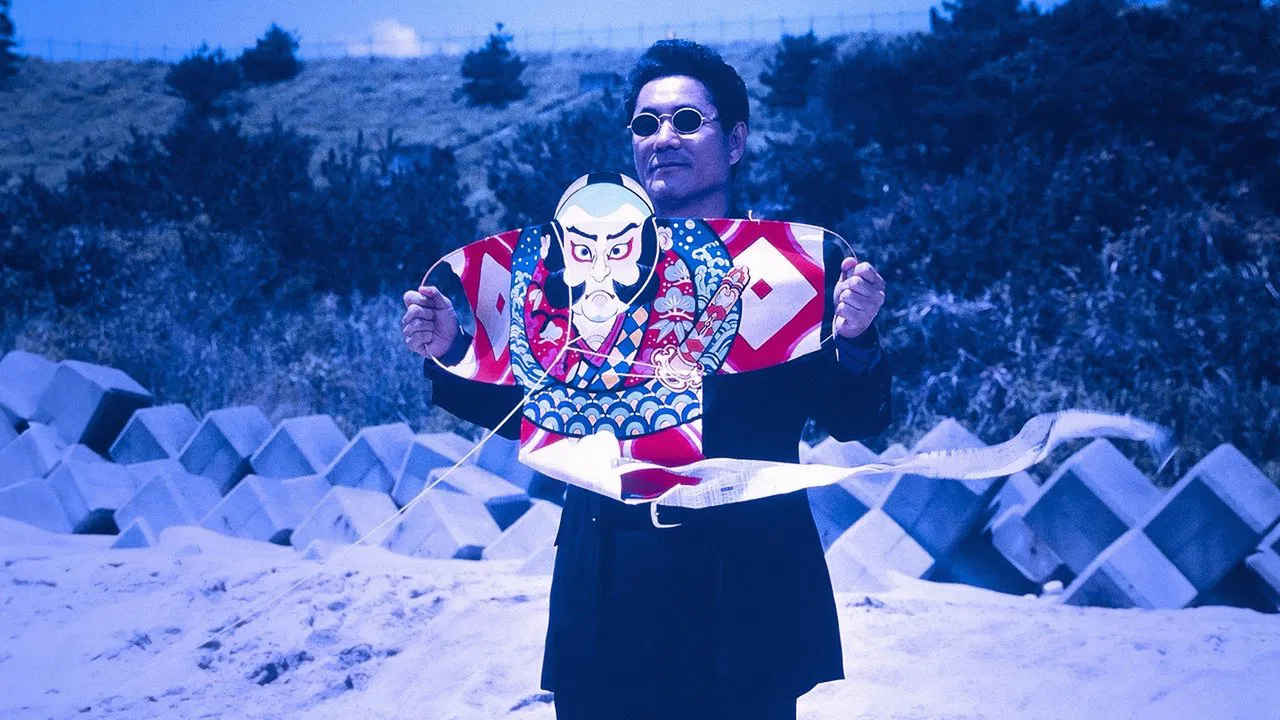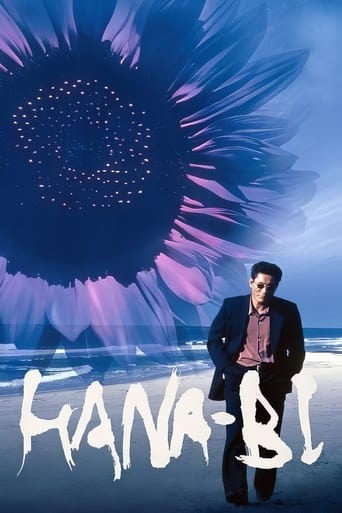SmugKitZine
Tied for the best movie I have ever seen
Greenes
Please don't spend money on this.
Protraph
Lack of good storyline.
Roman Sampson
One of the most extraordinary films you will see this year. Take that as you want.
jusfeel
When someone dies, How much content does the plot make out of it? It depends on what story and how the story is told. Given the speechless scenes and most of the time music in the background, I wouldn't expect that I can feel so much and feel even the story goes quite fast and require me to follow both with brain and my emotions. I never experienced before that I would burst into tears after the movie was over and the cast list started rolling on the screen already.I had to find my eye drops because my eyes hurt so much.Life is so fragile yet beautiful, and and then, the ending of it. You and I, we shall be.
Deigues
Takeshi Kitano dives once more into the yakuza underworld and emerges with a fierce performance, as he leads one of the decade's best hidden gems.Kitano plays Nishi, a cop whose life has been slowly crumbling apart and is about to take an even darker turn. He's lost his daughter and his wife is fighting an uphill battle with leukemia. She spends her days at the hospital and, to pay for her treatment, Nishi now finds himself in debt with the yakuza. To add insult to injury, he's also feeling guilty, as his partner, Horibe, has been confined to a wheelchair after being injured while Nishi was visiting his wife. It's here that the film parts into two narratives: that of Horibe, who must grapple with his new condition, and of Nishi, who has to repay the yakuza and deal with his wife's inevitable demise.Make no mistake, this isn't an Asian action movie. The film has a very deliberate pace. Kitano often shoots long and almost silent takes, showing us a cold and deadpan Nishi, always hidden behind his shades, even when he's with his wife. In fact, the two barely talk throughout the film, but they're truthful, as if they've been together long enough to tell each other all they had to tell. Sometimes they giggle, or share a more heartwarming moment, but these moments are fleeting. It's in between these long takes that we get another look at Nishi. With flawless editing, Kitano makes violence spark in "Fireworks", but that's all it does. Rarely does he linger in the violence or the gore, the act itself is nothing more than that, an action.Both Horibe and Nishi are men to whom life has been treacherous, and yet it's curious to note the distinct way in which these two men react. Horibe is the more vocal of the two, but still seems better at handling his misfortune than the explosive and criminal Nishi. Truth be told, the only pleasant moments in Nishi's life seem to be the ones he spends with his wife, walking by the shore or sitting by the beach, he's calm. However, if he's confronted by his own immoral actions, mayhem ensues. This is mostly how "Fireworks" plays, like a ticking time-bomb, serene but with the threat of violence always at the surface."The flame that burns twice as bright burns half as long" - we know that eventually Nishi will get his comeuppance, but whether he truly deserves it is what's most unsettling about "Fireworks".
ackstasis
Takeshi Kitano's 'Hana-Bi' is something of an oddity. True to his previous efforts as director, the film contains its fair share of shockingly-graphic violence, and yet at its heart lies a touching tale of love, loyalty and devotion. For the entire running time, Kitano (who, aside from directing, also wrote and starred in the film) treads a perilously fine line between the two thematic extremes; it is an intricate balancing act that, if attempted by a less-talented filmmaker, might very possibly have turned into a complete cinematic disaster. Nevertheless, the director manages to pinpoint this perfect centre of balance, and the clash of beauty and violence combines to create a jarring amalgamation of conflicting emotional responses. We, as the audience, as simultaneously repulsed and entranced; as a whole, 'Hana-bi' is one of the most beautiful film experiences of the last decade or so.The title of the film itself acknowledges these opposing visual styles. Whilst the Japanese word 'Hanabi' translates to 'Fireworks' (the title under which it was released in the United States), the addition of the hyphen to the title ('Hana-bi') emphasises two individual components of the word, which translate respectively into "Fire" and "Flower," the collision of destruction and beauty/renewal. Much of the film concerns a cop named Yoshitaka Nishi (Kitano), who is forced to retire after a shooting on the job leaves his partner, Horibe (Ren Osugi), paralysed, alone and confined to a wheelchair. All the while, Nishi is still coming to terms with the impending loss of his wife, Miyuki (Kayoko Kishimoto), who is slowly dying from leukemia. As any grieving husband might do in such a situation, Nishi decides to quietly rob a bank, and he then uses most of the proceeds to fund a final loving family holiday for his ailing partner.The scenes between Nishi and his wife are among the most touching I've ever witnessed. Miyuki has only two lines in the entire film, and so the couple spend most of their time in complete silence and quiet reflection, and yet you can truly sense the affection that they both have for each other. Their love is completely unspoken, and this makes it all the more touching when Miyuki does finally speak. Another touching character is Horibe, the loyal police force partner whose crippling injury leaves him alone and depressed. After attempting suicide, Horibe receives painting materials in the mail, and he commits his emotions to canvas, finally uncovering a reason for his continued existence (importantly, the artwork we see in the film was actually created by Kitano in 1994, after a near-fatal motorcycle accident). The film's phenomenally moving soundtrack was composed by renowned Japanese composer Joe Hisaishi, in his fourth collaboration with the director.There are very few negative criticisms that can be said of 'Hana-bi.' One possible item is that the film's unusual flashback structure made some plot-points difficult to follow, and I'm still unsure of which cop's lonesome widow Nishi was in the habit of visiting. However, that's the only critique that springs straight to mind. All in all, 'Hana-bi' is a gloriously assorted blend of violence, love and gentle humour, and a first viewing is not likely to be forgotten in a hurry.
badtothebono
So, it has come to this. In the top-rated comment on this flick, somebody says "Nishi is an honorable man". Really? This is a guy who mainly kills and maims people in the movie. He takes a short break to rob a bank. Honorable? How would you like your kids to go to school with the kids of someone who calls that honorable? Wait, there's more! The person also says "we can tell he's constantly thinking." How can we do that? Well, do you know that joke "How can you tell when a CEO/politician/lawyer is lying?" ... "His/her lips move." Well, Nishi's lips never move, so I guess that means he is thinking.Of course, this is existentialism to warm the hearts of the cult of victimization. Existentalism supposedly stresses that an individual take responsibility for the consequences of one's acts. Not Nishi. Borrow money from the yakuza. What, they want it back? Kill them. The cops find out. Kill yourself and your wife.Really honorable.

